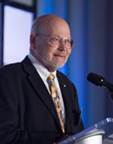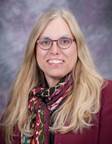
2018 Central Region Conference |
Click here to download a PDF of the conference program.
Sessions marked with ** are part of the Emerging Leaders Program |
5:30p.m. Executive and Planning Committee Meeting | Pershing
In early for the conference? Please join our short Executive and Planning Committee Meeting and dinner following at Sugarfire Smoke House.
8:00a.m. – 5:30p.m. Registration Open | Landmark Foyer
8:30a.m. – 11:30a.m. UPCEA Emerging Leaders Regional Program | Benton (Pre-Conference)
Advance registration is required. The Emerging Leaders Regional Program includes the pre-conference (continental breakfast, instrument provided), the facilitated capstone session, dedicated content throughout the conference, facilitated networking, and opportunities to join a post-event cohort and to earn a formal credential (badge). Emerging Leaders Regional Program registration is in addition to full conference registration, which is required for the Emerging Leaders Regional Program participation.
Pre-Conference: Individual and Organizational Excellence in Higher Education **
Continental Breakfast Included for Pre-Conference Registrants
With three immediately actionable insights in mind, this interactive workshop will examine leadership behaviors within the context of professional, continuing, and online higher education. First, to identify and leverage personal leadership strengths, you'll complete and discuss the Clifton StrengthsFinder assessment. Second, to identify the unique strengths and challenges of your organization, you'll review Excellence in Higher Education — a model for organizational assessment and improvement. Finally, you'll identify opportunities to apply your personal leadership strengths to address the needs of your organization.
Facilitator:
 |
Ralph A. Gigliotti, Ph.D., |
12:00 - 1:00 p.m. Welcome Lunch | Landmark Ballroom 5-7
1:00 - 2:00 p.m. General Session I | Landmark Ballroom 5-7
 Toward Inclusive Excellence in Online, Professional, and Continuing Education **
Toward Inclusive Excellence in Online, Professional, and Continuing Education **
Kevin McDonald, Vice Chancellor, University of Missouri
This keynote address will discuss the important role that diversity and inclusion play in achieving organizational excellence and the specific implications for online, professional, and continuing education efforts. Overarching frameworks and foundational strategies will be shared.
2:10 - 3:00 p.m. Concurrent Session I
From None to Known: Fostering and Managing Rapid Online Growth Part I **
Online Administration
(Benton)
Starting a centralized online/extended learning unit requires strategies that align with the history, core values, structure, and climate of individual colleges and universities. In this two-part presentation, leaders from a large and a mid-size institution will discuss their recent journeys in building new centralized online units for their campuses. Presenters will highlight major decision points that impact long-term success, discuss options and potential positive and negative outcomes, and bring to light unforeseen catalysts and barriers.
This session is designed to allow participants to meet the following learning outcomes:
Steve VandenAvond, Northern Michigan University
Robert Griffiths, The Ohio State University
Round Peg/Square Hole: Fitting Instructional Design in the Higher Education Landscape
Business and Operation
(Lindell)
Instructional designers have become commonplace among many higher education campuses in recent years. However, is this change a good fit or do these professionals struggle in their roles? Drawing from recent literature and data from a recent survey, this session presents some information on how instructional design may benefit or fall short within the higher education landscape. Participants will be asked to contribute to the conversation and enhance their campus’ instruction design strategic practice.
This session is designed to allow participants to meet the following learning outcomes:
Kevin Forgard, University of Wisconsin
Developing Curriculum For New Degree Programs Using the MOSTT Framework
Program Planning and Implementation
(Kingsbury)
Participants will learn processes related to the Mission, Objectives, Strategy and Tactics, and Tasks (MOSTT) framework at the programmatic and course level in the creation of new degree programs. Strategies such as implementation of technology to enhance learning and engagement among students will be discussed. Additionally, proactive approaches in meeting the needs of the target market and best practices in application of the MOSTT framework will be presented with opportunity for further discussion among participants.
This session is designed to allow participants to meet the following learning outcomes:
Katie Devany, Saint Louis University
Shawn Steadman, Saint Louis University
John Buerck, Saint Louis University
Touchpoints for Financial Wellness: Impacting Students Throughout the Enrollment Lifecycle
Marketing, Enrollment, & Student Services
(Westmoreland)
Before, during, and after their enrollment at our schools, students are faced with decisions that greatly impact their financial health. Join us to learn how Indiana University Online developed a model to provide financial messaging to prospective, applied, admitted, and enrolled students and foster positive financial decision-making. Explore tools and best practices for delivering impactful, just-in-time guidance to students at all points in the enrollment cycle.
This session is designed to allow participants to meet the following learning outcomes:
Nathan Lohr, Indiana University
Combining Compliance with Quality
Online Administration
(Pershing)
Whether required by regional accreditors, professional licensing bodies, or as a condition of interstate authorization reciprocity through SARA, adherence to specific quality frameworks has become less voluntary in recent years, particularly for institutions of higher education that seek a national presence. After providing a brief overview of core compliance areas for online education, the presenters will highlight the need to incorporate quality standards into compliance efforts and facilitate a group discussion around this topic.
This session is designed to allow participants to meet the following learning outcomes:
Richard LaFosse, Indiana University
Ilana Linder, Indiana University
Annual Program Review Processes: Creating Engaging Virtual Experiences
Program Planning and Implementation
(Portland)
This presentation will engage attendees by providing an overview of the virtual program review process utilized by an online campus that offers undergraduate through doctoral degree offerings. Preliminary research findings will be shared to provide insight on administrative faculty perceptions of presenting at virtual program review sessions. Attendees will also participate in a discussion of best practices for program review and how to create engaging program review practices in virtual settings.
This session is designed to allow participants to meet the following learning outcomes:
Chelsea Overholt, The Chicago School of Professional Psychology
Kelly Torres, The Chicago School of Professional Psychology
3:10 - 4:00 p.m. Concurrent Session II
From None to Known: Fostering and Managing Rapid Online Growth Part II **
Online Administration
(Benton)
Starting a centralized online/extended learning unit requires strategies that align with the history, core values, structure, and climate of individual colleges and universities. In this two-part presentation, leaders from a large and a mid-size institution will discuss their recent journeys in building new centralized online units for their campuses. Presenters will highlight major decision points that impact long-term success, discuss options and potential positive and negative outcomes, and bring to light unforeseen catalysts and barriers.
This session is designed to allow participants to meet the following learning outcomes:
Steve VandenAvond, Northern Michigan University
Robert Griffiths, The Ohio State University
Building a Cohort in Four Months and Discovering a Collaborative Process for an Entire Department
Marketing, Enrollment, & Student Services
(Kingsbury)
Follow the team from Western Michigan University’s Extended University Program on a wild ride as they explore paths, obstacles, challenges, and outcomes to guide students through the enrollment funnel to gain a cohort for a new program at a new location in just four months. Find out how this one program changed an entire department's dynamic. Nothing ever moves quickly within higher education, except when they do.
This session is designed to allow participants to meet the following learning outcomes:
Kristin Hrynczuk, Western Michigan University
Traver McLaughlin, Western Michigan University
Test Driving Online Learning: Giving Prospective Students a Sneak Peek of the Online Experience
Marketing, Enrollment, & Student Services
(Portland)
Are your online courses right for me? With no shortage of online options, prospective students are shopping around to find just the right online program. Come discover the space Indiana University Online provides for prospective students to test drive actual online classes built by Indiana University faculty.
This session is designed to allow participants to meet the following learning outcomes:
Mitchell Farmer, Indiana University
Julia Sanders, Indiana University
Scalable Online Student Services to Enhance Success: An Administrative-Centered Student Service Model
Online Administration
(Westmoreland)
Program administration and student success are not mutually exclusive, they are completely dependent on one another, and more so for online programs. Online graduate students need an administrative-centered student services model to balance their lives with their course work. Participants will learn about the scalable student services and advising models that the SPEA Connect program has implemented, and how it enhances its leadership’s ability to make decisions regarding future course planning and course development needs.
This session is designed to allow participants to meet the following learning outcomes:
Daniel O'Donnell, Indiana University
SESSION CANCELED:
Creating an Interactive Online Classroom: Tips and Strategies for the Next Decade and Beyond
Program Planning and Implementation
(Pershing)
The panel discussion will highlight high-quality examples of the types of resources that can be used to promote interaction in the online environment. We will discuss appropriate pedagogical techniques that can be used to create collaborative and interactive learning environments. This includes strategies for course development and facilitation in the online environment. This session will allow for all attendees to contribute their thoughts for an open-panel discussion. The goal of this session will be to allow for attendees to share their thoughts and strategies.
This session is designed to allow participants to meet the following learning outcomes:
Charles Lively, Colorado State University
A Guide To Programming in the Professional Master's Degree Space
Program Planning and Implementation
(Lindell)
For more than two decades the number of master’s degrees granted in the U.S. has risen steadily. Much of the anticipated continued growth will come from professional master’s programs—programs focused on developing advanced knowledge and professional skills that will help students advance in a current job or shift career orientation. This session will look at key trends in professional master’s programming, discuss what these trends portend for future programming, and introduce useful strategies, tools and tips for developing successful programs, building a professional master’s curriculum, and engaging faculty.
This session is designed to allow participants to meet the following learning outcomes:
John Stone, University of Wisconsin - Extension
Seth Meisel, University of Wisconsin - Whitewater
4:00 - 4:30 p.m. Dessert with Exhibitors | Landmark Foyer
4:30 - 5:30 p.m. General Session II | Landmark Ballroom 5-7

The Millennial Manager
Jim Fong, Chief Research Officer and Director, UPCEA Center for Research and Strategy
This presentation by Jim Fong, Chief Research Officer for UPCEA, will focus on how higher education is being shaped by the growing audience of millennials which is quickly becoming the majority of decision-makers, influencers, managers, directors, and organizational leaders.
5:45 - 7:00 p.m. Opening Reception | Statler Ballroom
7:30 a.m. – 3:30 p.m. Registration Open | Landmark Foyer
7:30 - 8:30 a.m. Breakfast | Landmark Foyer
7:45 - 8:30 a.m. UPCEA Central Region Annual Update ** (All Attendees Welcome) | Landmark Ballroom 5-7
8:30 - 8:40 a.m. John Christopher Leadership Award Presentation | Landmark Ballroom 5-7
8:40 - 9:40 a.m. General Session III | Landmark Ballroom 5-7
PCO 2025: The Future of Professional, Continuing, and Online Education Panel **
Moderator:
Engage in a highly interactive session with a panel of senior leaders on where our dynamic field is headed. Alternative credentials, shifting demographics, and new models are already shaping how institutions serve students. This group of panelists will provide their unique perspectives on organizational and market forces that are emerging, how they are responding at their institutions, and how UPCEA members will lead us into the near-term future (2025!).
 |
 |
|
|
|
9:40 - 10:00 a.m. Break with Exhibitors | Landmark Foyer
10:00 -11:00 a.m. General Session IV | Landmark Ballroom 5-7
StoryUP
 Michele Spry, Co-Founder of Honor Everywhere VR
Michele Spry, Co-Founder of Honor Everywhere VR
Michele Spry will share the important work StoryUp is doing in the realm of virtual reality and through storytelling. StoryUP is a tribe of storytellers, psychologists, developers, filmmakers, audio engineers and technologists. They began in 2015, trying to find a solution for terminally-ill WWII Veterans who were not able to physically travel to see their memorials in Washington, DC. Through honoreverywhere.com, they learned VR appeared to be impacting users’ moods and physiology.
Here are examples of their work in action:
11:10 a.m. - 12:00 p.m. Concurrent Session III
A Project Management Approach to Institutional Online Readiness Assessment **
Program Planning and Implementation
(Benton)
The presenter will examine the various institutional operational pieces that need to be considered in initiating a mass production of online courses.
This session is designed to allow participants to meet the following learning outcomes:
Adam Samhouri, Higher Learning Partners of Regis University
Using Gap Analysis to Target Improvements and Enhance Student Success
Marketing, Enrollment, & Student Services
(Westmoreland)
There will always be courses with high D/F/W rates simply because of the nature of their content and the preparation of students who take them. One can, however, use student characteristics to predict D/F/W rates in particular courses and then compare these predictions with actual success. We call such an approach ”gap analysis” and will show how it can be used to pinpoint courses in which students are exceeding or falling short of expectations.
This session is designed to allow participants to meet the following learning outcomes:
Karen Swan, University of Illinois Springfield
Bill Bloemer, University of Illinois Springfield
Scott Day, University of Illinois Springfield
Leonard Bogle, University of Illinois Springfield
#WelcomeOnlineStudents: Collaborating to Build Flexible Orientation Experiences for Online Learners
Marketing, Enrollment, & Student Services
(Portland)
Orientation is a quintessential moment for residential students heading off to college. But what about online learners? IU Online is creating flexible, scaffolded orientation experiences that allow students to select resources relevant to them. Join us for a lively discussion-focused presentation and test drive some of our orientation experiences (BYOD).
This session is designed to allow participants to meet the following learning outcomes:
Mitchell Farmer, Indiana University
Julia Sanders, Indiana University
Behind the Scenes – Scaling and Growing Online Classes at a Public University
Online Administration
(Kingsbury)
Online course demand exceeds supply at Southeast Missouri State University. Learn the strategies and tactics to address demand including part-time instruction, graduate students, SPOCS, co-copyright courses and our newest tactics – the Master Template Studio and Adjunct Integrity plan. Master Template Studio was developed to support full-time faculty in creating master course templates for high-need online courses and programs. The Adjunct Integrity plan is a framework that can be used to train and support online adjuncts.
This session is designed to allow participants to meet the following learning outcomes:
Chelsea McNeely, Southeast Missouri State University
Dennis Kinkead, Southeast Missouri State University
Tell Me Now! Asynchronous, Online Communications Assessment
Online Administration
(Pershing)
Communications assessment that mimics real situations is necessary and challenging in online medical education. Traditionally, effective training requires modeling in clinical settings, but the Master of Science in Palliative Care at University of Colorado Anschutz Medical Campus has limited opportunities for in person modeling, assessment, and feedback. This session highlights the use of YouSeeU to facilitate spontaneous, asynchronous communications assessment and shares tips for participants to develop similar assessments in their courses without specific software.
This session is designed to allow participants to meet the following learning outcomes:
Lynée Sanute, University of Colorado
Making Ideas Happen – Leading Change in your Program
Program Planning and Implementation
(Lindell)
Join this session to learn strategies for implementing small or big change in your program. Liz will share her experience leading her program through a large-scale remodel - from inception to implementation. You’ll learn what worked well, what didn’t and why it’s always worth it.
This session is designed to allow participants to meet the following learning outcomes:
Liz Bush, University of Wisconsin
12:00 - 1:30 p.m. Lunch & Awards Recognition | Landmark Ballroom 5-7
1:30 - 2:00 p.m. Dessert with Exhibitors | Landmark Foyer
2:00 - 3:00 p.m. General Session V | Landmark Ballroom 5-7
Missouri’s Best in Midwest and Talent for Tomorrow
Moderator:
Commission Mulligan, Director Dixon, and Director Leathers will present on Missouri’s Best in Midwest and Talent for Tomorrow Initiatives. Best in Midwest is an initiative to transform Missouri’s Department of Economic Development into the top economic development agency in the Midwest. Missouri’s economy has fundamentally changed and how we approach economic development over the next generation is critical. This initiative focuses extensively on helping businesses grow and create jobs and helping workers access training and acquire skills to find employment. Talent for Tomorrow is the cornerstone of a comprehensive suite of initiatives that will position Missouri to excel in a global economy changed by trade, technology, and other dynamic forces. To be sure, ensuring that our economy has available, productive and talented workers is the single most important factor for success in economic development. Our businesses will thrive, and Missouri will be more competitive if we attract, retain, and grow our workforce.
|
|
|
|
3:30 - 5:00 p.m. Museum at the Gateway Arch Tour | Hotel Lobby
Sponsored by: |
5:30 - 7:00 p.m. Washington University Reception ** | Statler Ballroom
7:30 - 11:30 a.m. Registration Open | Landmark Foyer
7:30 - 8:00 a.m. Breakfast | Landmark Foyer
8:00 - 8:50 a.m. Concurrent Session IV
Increasing Retention through Targeted Student Outreach
Marketing, Enrollment, & Student Services
(Westmoreland)
Within a 21 semester timeframe, our student services team increased retention from 66% to 91%. We will share the methods we implemented to accomplish this, including the 5 categories we group our students into and how we tailor advising outreach to the unique needs of those groups. The objective in our advising methodology is to develop effective advising techniques that address the various obstacles non-traditional, online students encounter throughout their academic careers.
This session is designed to allow participants to meet the following learning outcomes:
Sarah King, University of Colorado Skaggs
Jennifer Hope, University of Colorado Skaggs
Shaun Gleason, University of Colorado Skaggs
Jennifer Payne, University of Colorado Skaggs
Moving Beyond “Content” and “Information”: Applying Instructional Design Techniques to Enhance the Self-Paced Learning Experience
Online Administration
(Pershing)
Self-paced learning is sometimes viewed as static, one-way communication in which an expert “offloads” knowledge. This approach can leave learners feeling isolated, dissatisfied, and overwhelmed. This 50-minute presentation challenges that view by discussing instructional design solutions that make self-paced learning more student-centered, engaging, and interactive—while also promoting increased retention and deeper learning overall. These techniques can be applied to any instructional situation but are especially suited to enhancing the learning experience in self-paced contexts.
This session is designed to allow participants to meet the following learning outcomes:
Amanda Stafford, University of Missouri-Columbia
Managing Online Course Development at Scale
Online Administration
(Portland)
Get inspired with (and equipped via downloadable files) various tools and processes for “scoping” online course development projects, articulating team capacity, prioritizing which courses to develop, tracking time spent on projects, and refining one’s estimation accuracy. Together, these tools help the University of Illinois at Urbana-Champaign’s central support unit produce approximately 100 fully-online courses per year and can help a single instructional designer or a team of 30 designers and media professionals manage their workloads.
This session is designed to allow participants to meet the following learning outcomes:
Jason Mock, University of Illinois at Urbana-Champaign
State Authorization in the Wake of July 2018
Program Planning and Implementation
(Kingsbury)
Since at least 2010, many have known about the impending approval of out-of-state online or distance education degree programs when we had thought we were serving “a world without borders.” Federal rules of December 2016 did not go into effect July 1, 2018: deferred to 2020. However, SARA (State Authorization Reciprocity Agreements) rules required notifications to prospective students regarding any degree-- often with out-of-state internships-- leading to professional licensure and potential applicability in other states.
This session is designed to allow participants to meet the following learning outcomes:
Evan Smith, University of Missouri/Mizzou Online
Design Thinking Leading to Academic Innovation and Success **
Program Planning and Implementation
(Benton)
If you are not implementing design thinking to your program development, you are missing a critical method that has proven to be successful. Come see how MSU’s Innovation HUB and other institutions have used Design Thinking to create successful programs, centers, and processes to become more successful.
This session is designed to allow participants to meet the following learning outcomes:
Jerry Rhead, Michigan State University
Meni Sarris, Story+Structure
Affordably Managing Accessibility Compliance: A Pilot Using Student Workers
Online Administration
(Lindell)
Many institutions struggle with how to efficiently meet accessibility requirements for digital learning content while having limited staff and financial resources. This presentation will examine an initiative begun in the Spring 2018 at the University of Illinois Springfield that has already proven to work well in helping faculty meet accessibility requirements. This presentation will describe how the initiative was developed and managed, its performance and cost metrics, and explore the challenges faced and lessons learned.
This session is designed to allow participants to meet the following learning outcomes:
The primary outcome will be considerations for how participants can replicate or modify a similar program at their institutions. Primary takeaways include:
Vance Martin, University of Illinois Springfield
Michele Gribbins, University of Illinois Springfield
Vickie Cook, University of Illinois Springfield
9:00 - 9:50 a.m. Concurrent Session V
The Secret Sauce of Storytelling: Harness the Power of Structure to Increase Engagement **
Marketing, Enrollment, & Student Services
(Benton)
Structure is the secret sauce of storytelling and is applicable to any medium: a testimonial, blog, email campaign or Facebook post. Structure is invisible to the viewer, but yields an emotional response. Understanding how to apply this simple four-part system gives you the same power as pop culture. Best of all, applying this structure is free. Any marketing department, regardless of budget, can implement this system and increase engagement.
This session is designed to allow participants to meet the following learning outcomes:
Sarah Whorton, Mizzou Online
Transforming the College Application into a Simple Survey
Marketing, Enrollment, & Student Services
(Westmoreland)
With services like Amazon and Netflix shaping the expectations of online consumers, the landscape of the college application is shifting. Learn how IU Online demystified the application process, turned a survey instrument into a flexible college application, and increased applications without compromising the integrity of the online student applicant pool.
This session is designed to allow participants to meet the following learning outcomes:
Mitchell Farmer, Indiana University
The Path to Creating an Online Master of Mass Communication Program
Program Planning and Implementation
(Portland)
This session explores the best practices of creating and administrating an online master’s program by reflecting on the development of the first online master of mass communication program accredited by the Accrediting Council for Education in Journalism and Mass Communication.
This session is designed to allow participants to meet the following learning outcomes:
Rocky Dailey, South Dakota State University
Carey Kilmer, South Dakota State University
Transforming Instructional Practice through Digital Learning
Online Administration
(Kingsbury)
Launched in September 2017, the Digital Faculty Fellows program at Winona State University supports the use of digital courseware to improve engagement, personalization, and successful completion in one or more lower-division gateway courses and builds significantly on WSU’s history of transforming instructional practice through digital learning.
Participants will learn about the development of the Digital Faculty Fellows program and hear about the first two Faculty Fellows.
This session is designed to allow participants to meet the following learning outcomes:
Linda Kingston, Winona State University
Scaling Online Classes – How to Build Master Course Templates and a Network of Qualified Adjuncts
Program Planning and Implementation
(Pershing)
Demand for online classes is far exceeding supply at Southeast Missouri State University. To address this, a holistic plan was developed that can scale online courses. This includes the development of master course templates, an adjunct recruitment pool, training, and an adjunct support system. This program utilizes different programs working in harmony to not only scale online course offerings, but locate and support adjunct faculty to teach the courses.
This session is designed to allow participants to meet the following learning outcomes:
Dennis Kinkead, Southeast Missouri State University
Chelsea McNeely, Southeast Missouri State University
10:00 - 11:00 a.m. General Session VI | Landmark Ballroom 5-7
 It’s a New Day and Change is the New Normal **
It’s a New Day and Change is the New Normal **
Karen Pedersen, Dean, K-State Global Campus, Kansas State University
No matter your institution type, location, or size, it is highly likely you are experiencing some degree of change. Whether it is a senior leadership change, organizational makeover, or program/market transformation, how do you survive and thrive in today’s increasingly VUCA world? What are the tools, strategies and approaches you can use as you lead and manage in a time of heightened ambiguity? Join me in exploring these change essentials for today’s continuing and digital learning leader.
11:00 - 11:30 a.m. Closing | Landmark Ballroom 5-7
11:30 a.m. - 12:15 p.m. UPCEA Emerging Leader Regional Program | Benton
Capstone Session: Recapping the Program and Next Steps **
Participants will be guided in this opportunity to reflect upon their experiences and invited to consider next steps, including opting-into a future cohort of peers, earning a credential (badge) recognizing this experience, and learning about future volunteer leadership opportunities within UPCEA.
Advance registration is required. The Emerging Leaders Regional Program includes the pre-conference (continental breakfast, instrument provided), the facilitated capstone session, dedicated content throughout the conference, facilitated networking, and opportunities to join a post-event cohort and to earn a formal credential (badge). Emerging Leaders Regional Program registration is in addition to full conference registration, which is required for the Emerging Leaders Regional Program participation.
Facilitators:
|
|
|
Amy Claire Heitzman, Ph.D., |
Terrie Nagel, Ph.D., |
Andrew Hathaway, |
Sessions tagged “Emerging Leaders,” ** denotes that this content is designed to offer skill development in areas critical for leadership like strategic planning, innovation, and leading teams. These sessions are open to any conference attendee, and are especially salient for participants of the regional Emerging Leaders program.